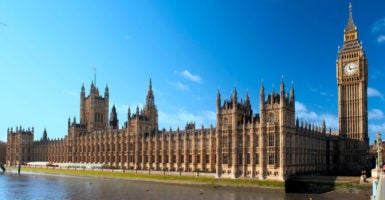On June 23, the British people voted to leave the European Union.
Earlier this week, Britain took another mighty step on the road to regaining its independence when the House of Commons voted, by a smashing margin of 498 to 116, to back Brexit.
The vote was necessary because the British government lost a series of court cases, which argued that the referendum by itself didn’t give the government the power to leave the EU: Parliament had to vote, too.
While Brexiteers liked the emphasis on parliamentary sovereignty, they didn’t appreciate the will of the people being overridden by judges.
But in the end, the court loss actually strengthened the government’s position. It now has the backing of the Commons.
Meanwhile, the opposition Labour Party is being pulled apart by the fact that its leader, Jeremy Corbyn, quietly supports Brexit, as do many of the constituencies that Labour represents—though most Labour members of Parliament do not.
Honorably, a majority of Labour members of Parliament respected the results of the referendum and voted for Brexit in the Commons.
But the British left is now in a cruel dilemma: If they oppose Brexit, they lose votes among the working class. If they back it, they lose face in posh Islington wine bars.
It’s a tough call.
Keeping up with the good news about Brexit is a full-time job. Before the referendum, the British people were told that leaving the EU would cause the collapse of the British economy and the start of World War III.
But, just in the last few days:
- The Bank of England raised its expectations for the British economy’s performance in 2017 to growth of 2 percent. After the referendum, it expected sharp slowdown.
- TheCityUK, the lobbying group for the City—Britain’s equivalent to Wall Street—did a u-turn and decided that Brexit represents an “unprecedented opportunity” for Britain. It had previously campaigned for Britain to remain in the EU.
- A leaked report from the European Union Commission acknowledged that, far from the City needing a good deal from the EU, it’s the EU that needs a good deal from the City.
- Yet another high-profile firm—Lego—committed to expanding its British operations. That comes after Apple, Google, and a host of other major international firms defied predictions that they’d quit Britain, and instead announced expansions.
- And, of course, British Prime Minister Theresa May visited the U.S., and was received enthusiastically by Republican lawmakers and the president. The Trump administration has made it clear that Britain is at the front of the line for a trade deal with the U.S.
This isn’t the end of the Brexit story. There will be more court cases, and more parliamentary votes. And, of course, there are going to be economic downs as well as ups.
But the first seven months of Brexit have gone remarkably, incredibly well, and the hits just keep on coming.
The vote of the Commons is just the latest, and the most powerful testimony to the fact that Britain is going to leave the EU and recover the birthright of all democratic nations: the power to govern itself.
And that’s not just good news for Britain. It’s good for the United States.




























